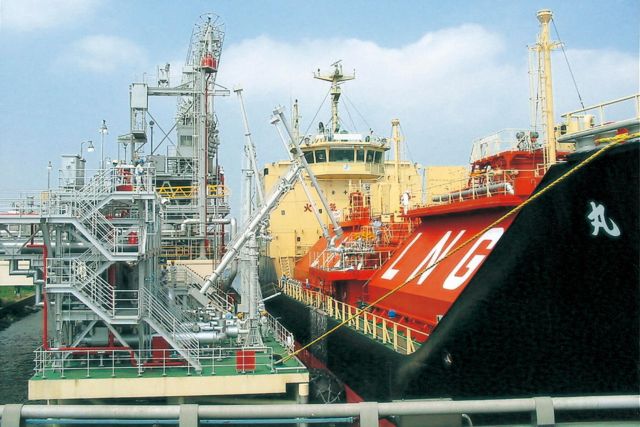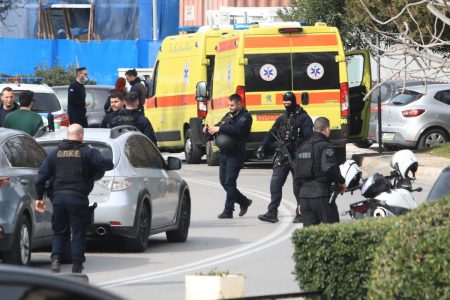Greece, as of April 20, is likely to find itself faced with an unprecedented situation in terms of meeting its energy needs.
This is the deadline for payment of installment of DEPA Commerce to the Russian Gazprom under the long-term supply contract concluded by the two companies and is valid for five years.
The public gas company procures about 2 billion cubic meters per year from Gazprom, a quantity that corresponds to 36% to 40% of gas imports.
Putin’s decree for “unfriendly countries” to pay for the quantities of gas sold means that DEPA Commerce, as well as other companies buying Russian gas, may be called upon to pay in rubles instead of euros or dollars. If they do not then they will find the tap closed…
The stance of Greece
The Minister of Environment and Energy, Costas Skrekas, speaking to SKAI channel, confirmed that after 20 days, on April 20, there is a payment installment that DEPA Commerce must pay.
“The next payment is after 20 days. We can not wait and take measures for the energy adequacy of Greece. Europe’s decision is clear. We do not succumb to blackmail “, said Mr. Skrekas, signaling the alignment of the Greek government with EU decisions.
Gazprom customers
Apart from DEPA Commerce, Mytilineos is also a customer of Russian Gazprom in Greece with a contract for the supply of quantities of gas through the pipeline that reaches Sidirokastro.
Sources from the private company told OT that “Mytilineos, like other companies supplied with gas from Russia, has been shielded before these developments. “And of course they do not go against the sanctions of Europe”, they add.
Marginal security
The country’s electricity system will be in a critical state in the event that Moscow decides to cut off gas supplies, while energy costs are expected to catch fire again.
With these words, the competent authorities make projections concerning the domestic energy market and consequently the daily life of the citizens and businesses from the moment of the disappearance of the Russian natural gas, which, as mentioned above, corresponds to about 36% with 40% of the imports of this fuel.
The same sources recommend “calm” and state that the necessary measures have been taken to ensure the country’s energy efficiency without, of course, excluding other emergency interventions that will depend on the total availability of gas in the international market and extreme weather conditions. .
And Costas Skrekas himself in his statements to SKAI pointed out that “we are at war and no one can predict what will happen. We can not estimate the course of prices.” He went on to say what would happen if Moscow cut off gas flow: “Then we will go to a level 3 alarm,” he said.
Adequacy
In the worst case scenario, the Ministry of Environment and Energy and energy regulator RAE have prepared Plan B based on the words of the Energy Minister.
Additional liquefied natural gas (LNG) loads will be required at the DESFA terminal in Revythousa. The supply of the three tanks should be uninterrupted every month with additional monthly loads of the order of 1 TerraW/h. Relevant plans for April have already been made.
In addition, by summer the lignite-fired power plants will have to operate sparingly… so that they are available in extreme weather conditions during the summer months.
In addition, power plants with a total capacity of 1 Gigawatt, such as PPC and the company HERON, will run on fuel oil instead of natural gas in order to save energy.
Finally, the final decision of DESFA for the installation of another floating LNG tank will be taken soon. This was confirmed by Mr. Skrekas to SKAI, reminding that “today DESFA will have to submit the cost-benefit study for the upgrade of the storage capacity of Revythousa”.
This way there will be an additional storage space.



